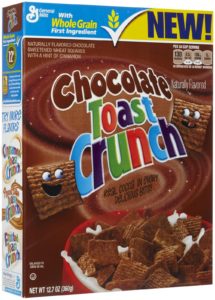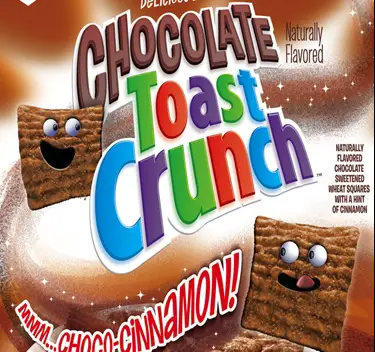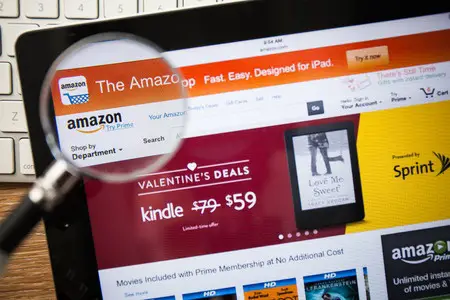Chocolate Toast Crunch Discontinued & Price Soars on Amazon

General Mills did not make any kind of announcement, but simply stopped making the cereal Chocolate Toast Crunch in mid-2016. Besides disappearing from store shelves, websites like Wal-Mart and Jet showed the cereal as being out-of-stock, and Amazon no longer had boxes available from the manufacturer, General Mills; only 3rd party sellers were offering the cereal and at marked up prices. Target.com has a great tool for checking to see if a particular product is at a particular store, and it became obvious that very few stores nationwide had any stock left. Amazon was also very telling. A cereal that could be bought on Amazon for $3.10 in April 2016 was selling for prices starting at $8.95 and up in October 2016.
A phone call to General Mills on October 28, 2016 confirmed a daily Chocolate Toast Crunch eater’s suspicion, Chocolate Toast Crunch had been discontinued.
People Get Attached to Certain Consumer Products
Think about when Coca-Cola announced it was changing the formula of Coke. Some people went bananas. They loved Coke and were not about to give it up. They stocked up with thousands of cans or bottles; they were stocking up like a survivalist before a nuclear war. The fact that Chocolate Toast Crunch got discontinued means that the product was not successful enough to keep. It did not have a good ROI for General Mills and did not have a huge following. However, that does not mean there is not a passionate group of buyers out there that loved it and couldn’t imagine eating any other cereal. People love consistency and are averse to change their eating habits. McDonald’s may not have the best hamburgers, but at least they are consistent. People don’t want stress in a part of their life that is normally not stressful.
How to Make Money Off Discontinued Consumer Products
This seems like an ideal business opportunity for a grocery store that can get wholesale pricing. Someone who is already in the grocery business, or even a convenience store that has access to wholesale pricing, could track products that they suspected might be discontinued. They could exclusively sell these products online at Amazon (a small independent grocery store in say, Santa Fe, New Mexico, would not have a huge customer base buying a particular consumer product; they would need a national audience to sell to). Worst case scenario, the products does not get discontinued and they sell at a normal retail price. Best case, they can mark it up many multiples of what they paid.
Nothing is Permanent; It Might Come Back
Coca-Cola brought back the original formula Coke as Coke Classic within a few months. General Mills previously discontinued French Toast Crunch and later brought it back; the General Mills rep said at much on the phone — if enough people call, we may bring it back. There is not guarantee that someone hoarding thousands of discontinued consumer products will make a profit. The manufacturer could bring the product back, the food could spoil, there may be very little demand for it, or its passionate fan base might be turned off by a price far above what they are used to paying. Selling on Amazon has its own challenges, and don’t forget that they always get their cut regardless of whether or not you make a profit.


